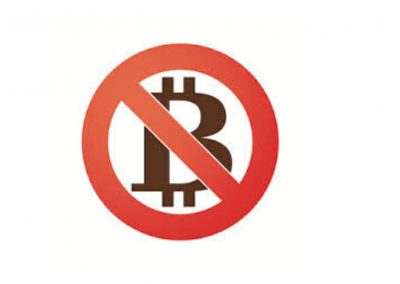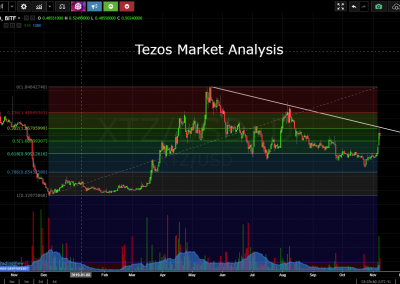From snake oil salesmen to cryptocurrencies, whenever there’s a possibility to make money, there are scammers ready to take advantage of people and leave before anyone figures out their true motives.
It’s easy to think that it won’t happen to us. However, if fake cryptocurrency wallets can make it through Apple’s screening process and end up in the app store, then no one is immune to scammer’s tactics.
Here are some strategies you can follow to keep from being a victim of bitcoin scams.
Avoiding Bitcoin Scams: Stay Informed
Most people know of snake oil salesmen. It’s funny to look back and think that people actually believed these con artists. To think that someone would be so naive as to buy some kind of sugar water elixir sold by a total stranger from the back of a beat up wagon feels more like bad fiction than reality.
But it happened. It happened with snake oil salesman, it happened with penny stocks and ENRON, it happened with chain emails, and now it’s happening with cryptocurrencies.
The reason all these previous schemes worked was that people lacked knowledge and bought into an easy solution, a quick path to wealth.
This empty promise is no different with cryptocurrencies. Bitcoin scammers are banking on the fact that many people are rushing to invest. They are betting that people will be too busy to read into what they’re saying and too hopeful to make quick profits to take the time to make informed decisions.
Before investing in any cryptocurrency, do your homework. Understand the basic principles of what blockchain is, what cryptocurrencies are, and where and how to buy them. A little work up front will save you sorrow and frustration in the long run.
And remember, that no matter how much you know, how much you’ve read, or how prepared you think you are, always be cautious to avoid bitcoin scams. Our belief that we are invulnerable provides the perfect environment for scammers to take advantage.
Familiarize Yourself with Typical the Scams Out There
By now, most people have heard of the emails from the Nigerian prince asking for money. And if you’ve ever tried to rent a house or buy a car directly from another person, you’ve experienced the request to have funds sent overseas because that person is “out of town.” Sure, it’s laughable, but a recent bitcoin scam of a fake John McAfee account was set up asking people to send in .02 Bitcoin with the promise of having 2 Bitcoins sent back. From that tweet alone, that wallet received over $1500 in Bitcoin.
There are a lot of different bitcoin scams out there. The more popular ones are Ponzi scams, Pump and Dump scams, and fake ICOs. Reading news articles about these scams and how they operated can help keep you prepared. It will also provide a context for how scammers operate in the cryptosphere.
Pump and Dump
Pump and dump scams involve a group of people getting together and artificially pumping up a coin’s value while providing tips to amateur investors that the coin’s value will rise. These unsuspecting investors buy into the coin, and as they are buying in, the scammers sell off their coins, causing the coin to crash and leaving the amateur investors with nothing.
The best way to avoid these types of scams is to ignore any tips on social media about rising coin prices and to avoid buying in on sudden price spikes. Be aware pump and dumps move fast. How fast? Often a pump and dump is over within minutes and you’re left holding the bag.
How Can You Keep Up with All the Bitcoin Scams?
You don’t have to know every type of bitcoin scam out there. And you won’t. These people are continually trying to come up with new ways to take your Bitcoin. You won’t be able to know all the types of scams. The only real way to protect yourself from them is to be cautious.
Two adages hold water when it comes to investing in the cryptocurrency market:
- There’s no such thing as a free lunch: Anyone reaching out to you offering you Bitcoin regardless of whatever else they have to say, is most likely a scammer. It’s best to stop there and walk away.
- If it’s too good to be true, it is: It’s common to be impatient with our desires for wealth. If we could snap a finger and have the money we want, life would be easier. But the reality is that investing takes time. Yes, Bitcoin’s price skyrocketed in 2017. But if you take a step back, you realize that it took 9 years for that to happen. Anyone promising you exponential rates of return in unrealistically short periods of time is mostly a scammer.
Keep Your Wallet Keys Secure
Keeping your private key secure may seem obvious, but it still needs to be mentioned. Never share your private key. Your wallet’s private key is how you spend your Bitcoin. If you keep it in an insecure location or hand it out to someone who asks for it, you risk losing all of your Bitcoin. Often phishers will contact people through email requesting their private keys. Treat your private key like the password to your online bank or your social security number or any other valuable document. Keep it safe and hidden.
Beware of Malware
Malware is more than a nuisance. It can lead to losing your entire investment. These troublesome programs sneak into your computer as attachments to emails or through links that are clicked on. Many times these emails lure potential investors in with the promise of getting rich quick. You may leave shaking your head, believing you dodged another scam, but unknown to you, your computer now has malware waiting for the right moment to attack.
Recently, malware was responsible for one person losing 13 BTC. He was sending crypto to a wallet and copied and pasted the public key. However, when he went to paste it, the malware changed the key on the clipboard to a different account. The result was losing over a hundred thousand dollars’ worth of crypto instantly. Avoiding suspicious emails, especially any involving cryptocurrency helps, but having the most secure anti-virus software is even better.
Stay on Your Guard
The takeaway from all this is that you have to treat your investment like any other financial asset and protect it. Don’t disclose how much Bitcoin you have, protect your keys, make sure your computer is secure, and before you put any money down, take the time to thoroughly research your potential investment first. Taking these steps will help safeguard your crypto assets and help you avoid bitcoin scams.











